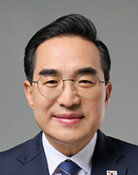Is Kim Jang-soo hailing from military suitable as ambassador to China in G2 era?
Is Kim Jang-soo hailing from military suitable as ambassador to China in G2 era?
Posted February. 16, 2015 08:06,
Kim Jang-soo, former chief of the National Security Office under the presidential office, has been nominated as Korean Ambassador to China. It is a surprise that Kim, who was sacked for saying The National Security Office is not the control tower for disasters effectively meant to excuse his office in the wake of the Sewol ferry disaster, has re-emerged as ambassador to one of the G2 countries. As Kim is not an expert on China nor can he be considered to have diplomatic expertise, the main opposition New Politics Alliance for Democracy even demanded the presidential office to reconsider his nomination, saying, It is questionable whether Kim will be able to seamlessly manage Korea-China relations.
It is the first time that a person who hails from the military is to assume South Korean Ambassador to China since Korea and China formed diplomatic ties in August 1992. He will also be the first former defense minister to serve as ambassador to one of the four powers, namely the U.S., Japan, China and Russia. Military and diplomacy are both channels aimed at protecting national interests externally, but the nature and methodology of their jobs are widely different. Even though Kim served as the first head of the foreign affairs and national security team in the Park Geun-hye administration, it has yet to be verified whether he is also armed with flexibility and strategic capabilities needed in the diplomatic frontiers or not, because he hails from the military after all. Despite this, the government is to send him to Beijing apparently because security cooperation has become highly important in Korea-China relations to that extent.
Korea-China ties may be at the optimal level in economic cooperation, but dark cloud is cast over the bilateral relations in the security front due to the suggested deployment of Terminal High Altitude Area Defense (THAAD). Chinese President Xi Jinping directly expressed his objection to the measure to President Park during his visit to Seoul in July last year. Chinese Defense Minister Chang Wanquan, who visited Korea last week, also threatened that the deployment of THAAD to South Korea will damage Korea-China relations. The ambassador nominee has been tasked with the important mission of bringing about Chinas understanding and cooperation in the issues of THAAD, standoff over North Koreas nuclear weapons and missiles, and reunification of the Korean Peninsula. Since Washington could have some doubt about the military commander-turned diplomats "Seoul-Beijing security cooperation," it is also important for South Korea to develop well-refined strategy to seamlessly develop both the South Korea-U.S. alliance and South Korea-China relations in parallel. These are missions that one cannot cope with adequately if he lacks capacity, even if he enjoys the presidents full trust.
For China, a country that values human relations and connection, frequent replacement of the South Korean Ambassador due to political situation in South Korea, and deployment of a figure who lacks understanding about China as the chief envoy might not be welcome news. One of former South Korean ambassadors was criticized for failing to play the due role because he failed to have adequate contacts with high-level Beijing officials, despite being a close confidant of the then incumbent South Korean president. Only when Kim meticulously builds up expertise and develops strategic mindset that goes beyond his flagship image as "uncompromising military general," he will be able to make contributions to improving South Korea-China relationship.




![[단독]“거부도 못해” 요양병원 ‘콧줄 환자’ 8만명](https://dimg.donga.com/c/138/175/90/1/wps/NEWS/IMAGE/2026/03/02/133450041.2.jpg)


